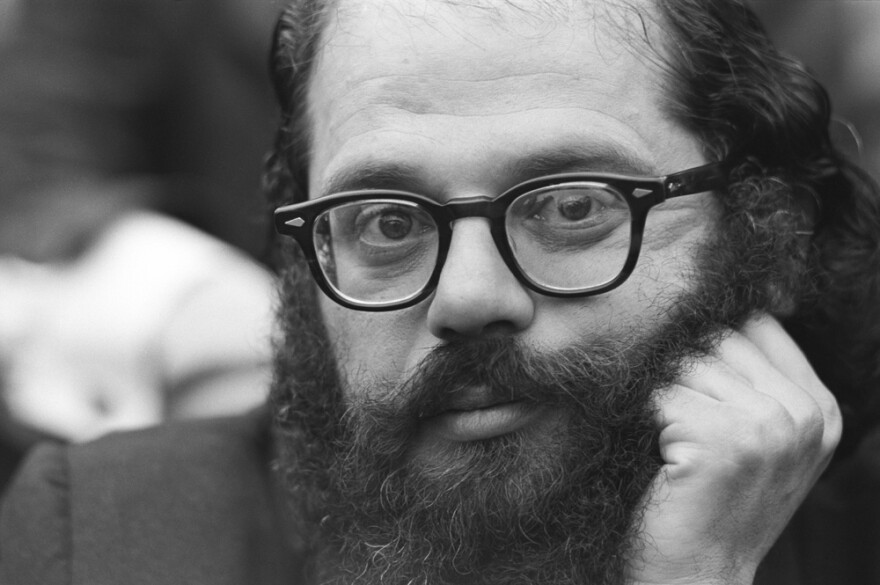This month marks the 50th anniversary of Allen Ginsberg, poet and Beat icon, coming to Wichita. Back in the 1950s, Kansas in general and Wichita in particular had produced an astonishing number of writers and artists who had gone to San Francisco to be part of the Beat scene. There were so many Wichitans involved that when Ginsberg received a travel grant, he made a point to visit Wichita on his tour of the Midwest.
In early February, 1966, Ginsberg had arrived in town, much to the alarm of local authorities, who were worried about possible obscenities. He was already a celebrity and crowds flocked to his readings at venues such as the Showboat and the Magic Theater / Vortex Art Gallery located next to the Eaton Hotel on Douglas.
Ginsberg then traveled to the University of Kansas and then up to the University of Nebraska before heading back to Wichita. Throughout, the poet was struck by the placidness of the Great Plains in contrast to the horrors in Vietnam that were coming across the radio. The result was a poem called the Wichita Vortex Sutra.
The first full reading of the sutra took place on February 21 at the ballroom of the Student Union of Wichita State. Some faculty refused to meet Ginsberg and the university would not officially sponsor his reading. However, a student effort led by Philosophy graduate student Roger Irwin made the event possible. A few days later, Ginsberg continued on his way. The feared obscenities never happened, and Wichita was marked in history.
On Sunday, February 21, at 1:00 there will be an event at the RSC that celebrates Ginsberg and the Wichita connection. There will be reflections from those who were there and a reading of the poem by KMUW’s own Jedd Beaudoin. Unlike 1966, this event has the full support of the WSU community!
To find more information about the Beat generation in Kansas, visit http://www.vlib.us/beats/.





